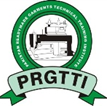Apparel Pattern Making (Manual) Course
Eligibility & Duration:
The Apparel Pattern Making (Manual) course is designed for individuals interested in the traditional art of pattern making in the fashion and apparel industry. Typically, eligibility requires a high school diploma or equivalent qualification. While prior knowledge of sewing or fashion design can be helpful, it is not always a strict requirement.
The duration of the course can vary depending on the institution and the depth of the program. Generally, it ranges from a few months for basic certificate programs to a year or more for comprehensive diploma or degree programs.
Awarding Body:
- Punjab Board of Techncial Education (PBTE)
- Textile Commissioner’s Organization (TCO)
Course Objectives:
The primary objectives of the Apparel Pattern Making (Manual) course are:
- Pattern Making Skills: To impart essential skills in creating garment patterns manually, including understanding body measurements and translating design concepts into patterns.
- Garment Construction Knowledge: To provide students with an understanding of how patterns are used in garment construction and how to adapt patterns to different styles and sizes.
- Accuracy and Precision: To emphasize the importance of precision and accuracy in pattern making to ensure that garments fit well and are aesthetically pleasing.
- Fabric Understanding: To teach students about various types of fabrics and their suitability for different styles and patterns.
- Manual Draping Techniques: To introduce students to manual draping and how to create patterns by draping fabric directly on dress forms.
Course Details:
The curriculum of the Apparel Pattern Making (Manual) course may include a combination of theoretical and practical subjects, such as:
- Basic Pattern Making: Learning the fundamentals of pattern making, including drafting blocks and basic pattern shapes.
- Pattern Adaptation: Adapting patterns for different garment styles, sizes, and design variations.
- Manual Draping: Practicing the art of draping fabric on dress forms to create garment patterns.
- Measurement Techniques: Understanding how to take accurate body measurements for custom pattern making.
- Fabric Manipulation: Exploring techniques for working with different fabrics and creating texture and design through pattern manipulation.
- Sewing Fundamentals: Gaining hands-on experience in sewing and garment construction to understand how patterns translate into finished garments.
- Pattern Grading: Learning how to grade patterns to create different sizes for mass production.
- Pattern Alterations: Understanding how to make pattern adjustments for fit and style preferences.
Career Prospects:
Graduates of the Apparel Pattern Making (Manual) course can pursue various career opportunities in the fashion and apparel industry, including:
- Pattern Maker: Creating patterns for fashion designers, clothing manufacturers, or custom garment makers.
- Fashion Designer: Using pattern making skills to develop original clothing designs.
- Custom Dressmaker/Tailor: Crafting custom-made garments based on individual measurements and style preferences.
- Garment Technician: Working with design and production teams to ensure that patterns are accurate and suitable for mass production.
- Fashion Instructor: Sharing pattern making skills and knowledge by becoming an educator or instructor.
Tuition Fee & Charges:
To inquire about fees or free programs at the Pakistan Readymade Garments Technical Training Institute (PRGTTI) in Lahore, you can contact office at the following phone numbers:
Phone: 042-99230756-57
Feel free to call these numbers to get the information you need about program fees or any available free programs offered by PRGTTI. PRGTTI staff will be able to provide you with the details you require regarding the cost of courses or any subsidized or free training options.
